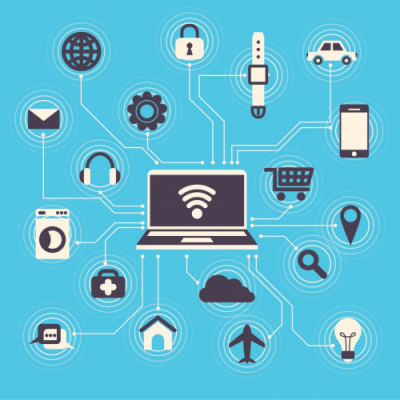How IoT is transforming the workplace

One of the new concepts brought about by the advent of the fourth industrial revolution that is greatly impacting the modern workspace is IoT, broadly known as Internet of Things. IoT is an interrelated system of computing devices, digital and mechanical machines, objects, people or animals that are provided with unique identifiers and the ability to transfer data over a network without requiring human-to-human or human-to-computer interaction. Beyond reaching every possible industry, IoT is augmenting everyday things like energy consumption, surveillance, mobility, building management, homes and even apparel. The platform collects data through network devices, analyses it, shares it to the IoT remote and finally sends it back to the devices across the network. IoT can greatly impact the workplace when everything as a service can be delivered in an online platform with accessible capacity.
By 2020, IoT will have more than 24 billion devices, which will ultimately represent a four to one ratio for every device to human entity in the world. Three stakeholders will benefit from this emerging technology- consumers, businesses and the government. With the huge variety of IoT applications in use, companies will have access to an enormous amount of data which will no longer be an exclusive, enterprise-only option. Businesses of all sizes will be able to improve their operations by tapping into these data clusters. Companies will need to use IoT as part of their planning to stay competitive and offer innovative and unique products and services. Virtually connected workplaces will link people using live chats, host meetings and share projects that are managed from one centralised system. Bring Your Own Device will take a new meaning when a smartwatch or smartphone will connect to a company device or when a roving laptop will dock at a workstation and instantly connect to the company network, giving more freedom to virtual and mobile workers.
Bangladesh needs to equip itself with the necessary infrastructure and formulate appropriate regulatory policies. With one of the fastest growing economies in the world, the densely populated country has a huge range of uses for IoT, which can be achieved through combined efforts of the government, industry and academia.
Nabila Hossain is a senior at Institute of Business Administration, University of Dhaka. Reach her at [email protected].

 For all latest news, follow The Daily Star's Google News channel.
For all latest news, follow The Daily Star's Google News channel. 



Comments